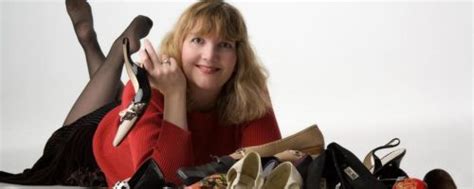A Quote by Christopher Bollen
I like the idea of the book being wiser than the person who wrote it. None of the novels I've written are direct transcriptions of me blathering over dinner with a glass of wine in my hand. I don't hold any illusion of those conversations being of particular value. The books, though, are - I hope - bigger than my opinions, investigations that go beyond my own intellect or wit.
Related Quotes
None of the modes by which a magistrate is appointed, popular election, the accident of the lot, or the accident of birth, affords, as far as we can perceive, much security for his being wiser than any of his neighbours. The chance of his being wiser than all his neighbours together is still smaller.
When I wrote the first Betsy book, 'Undead and Unwed,' I had no idea, none, that it would be a career-defining, genre-defining book, the first of over a dozen in the series, the first of over 70 published books, the first on my road to the best-seller list, the first on my road to being published in 15 countries.
...stories about [the German composer Johannes] Brahms's rudeness and wit amused me in particular. For instance, I loved the one about how a great wine connoisseur invited the composer to dinner. 'This is the Brahms of my cellar,' he said to his guests, producing a dust-covered bottle and pouring some into the master's glass. Brahms looked first at the color of the wine, then sniffed its bouquet, finally took a sip, and put the glass down without saying a word. 'Don't you like it?' asked the host. 'Hmm,' Brahms muttered. 'Better bring your Beethoven!'
Wormholes were first introduced to the public over a century ago in a book written by an Oxford mathematician. Perhaps realizing that adults might frown on the idea of multiply connected spaces, he wrote the book under a pseudonym and wrote it for children. His name was Charles Dodgson, his pseudonym was Lewis Carroll, and the book was Through The Looking Glass.
Inevitably I came to associate any wine I met with a specific place and a particular slant of history. I learned to perceive more than could be deduced from an analysis of the physical elements in the glass. For me, an important part of the pleasure of wine is its reflection of the total environment that produced it. If I find in a wine no hint of where it was grown, no mark of the summer when the fruit ripened, and no indication of the usages common among those who made it, I am frustrated and disappointed. Because that is what a good, honest wine should offer.
Total oblivion is the fate of almost everything in this world. I'm very likely to suffer that same fate; my work will probably not be remembered, and if any of it is, if any of those novels is fated to be one of those novels that is still being read 50 or 100 years after it was written, I've probably already written it.
Alcohol is certainly one of the most abused drugs since ever and ever, since Dionysus. They say have a glass of wine at dinner, which was done in the Latin countries. In Italy we always had a glass of wine at dinner. It is a good thing. But if you have dozens of glasses of wine at dinner it is not so good.
Some say it is the elements of hope and wonder in children's books that make them special. But there are many dark young adult novels these days. Adults loved Harry Potter, though it was written for the young. In the end, it is probably up to the reader of any age to decide if this book is for him or her.







































